I asked a few author friends, “How have you all printed, distributed, sold, and marketed your paperbacks? Or are you sticking with ebook versions only?”
 Toby Neal: Even with all the hassles of print, I will always do a print version of every book. They’re more expensive and time consuming to produce than an ebook, so they trail in timing. I do my books through Lightningsource, and they are gorgeous silky-matte masterpieces. I could never navigate that site without professional help; unlike Createspace it’s not designed for non-techies, and that’s a real drawback.
Toby Neal: Even with all the hassles of print, I will always do a print version of every book. They’re more expensive and time consuming to produce than an ebook, so they trail in timing. I do my books through Lightningsource, and they are gorgeous silky-matte masterpieces. I could never navigate that site without professional help; unlike Createspace it’s not designed for non-techies, and that’s a real drawback.
Rachel Thompson: Both my books are digital only. I plan the same for my next one. At some point I’ll do paper, but print copies are a fraction of what most of my clients sell.
 Christine Nolfi: My first 3 books were released in both print and digital, but #4 and #5 will be digital only. I don’t have any numbers to back this up, but I believe most indie writers earn the bulk of their income from ebooks. I never expected to earn much from the paperbacks, although I would like to see them carried by libraries coast to coast!
Christine Nolfi: My first 3 books were released in both print and digital, but #4 and #5 will be digital only. I don’t have any numbers to back this up, but I believe most indie writers earn the bulk of their income from ebooks. I never expected to earn much from the paperbacks, although I would like to see them carried by libraries coast to coast!
 Rachel Thompson: That’s true, Christine. 150 digital ebooks are sold for every 100 paper books. Forget about hardcover. And there’s so little cost involved with digital – beyond initial editing, formatting, graphic design, and proofing – that it makes the most sense for indies.
Rachel Thompson: That’s true, Christine. 150 digital ebooks are sold for every 100 paper books. Forget about hardcover. And there’s so little cost involved with digital – beyond initial editing, formatting, graphic design, and proofing – that it makes the most sense for indies.
Toby Neal: I’ve been lucky as a self-publisher. I’ve priced my print books low as a trade paperback and I’ve sold at least 5,000 copies of all the titles, which is more than other self-pubbers report.
Christine Nolfi: Pew Research indicates an increasing percentage of e-reader sales are made to people in the high wage ages of 30-50, and more and more, those people prefer to download an ebook vs. purchase a physical copy in a bookstore.
Toby Neal: But that brings up another issue: I think print books play an important role, even as technology changes. Print books are actually a class and economic issue, because of the secondary, used and donated book market that will eventually disappear if and when they do. Perhaps it’s my social worker perspective, but I’m sensitive to the divide between the haves and have-nots, and the e-reader issue points this up.
How many older people can or will make the switch? How about the poor, the homeless, those in jail? Books are an important escape and route to education for working-class and poor folks, and libraries historically have been great equalizers and hangouts for a cross section of every community. I think my print books deserve to find homes in all the hands of those who will never handle an e-reader.
Molly Greene: Toby brings up an issue that I’ve never considered. I actually borrow most of the print books I read from the library, partly due to cost and partly due to convenience. My local library is like “Cheers” to me, and I’d be heartbroken if that privilege disappeared. Great point, Toby.
 Rob Guthrie: I’m with Toby – I always do a print version as soon as possible. I don’t sell many but I like to have copies for book signings, local and regional book stores, and nothing – I mean NOTHING – feels as good as holding your paperback in your own hands.
Rob Guthrie: I’m with Toby – I always do a print version as soon as possible. I don’t sell many but I like to have copies for book signings, local and regional book stores, and nothing – I mean NOTHING – feels as good as holding your paperback in your own hands.
 Martha Bourke: I released print and ebook versions of Jaguar Sun on the same day in January, 2012. Although I loved seeing my book in print, I haven’t sold anywhere near the amount of paperbacks as ebooks – I think I’ve sold 50! I use them mostly for contests and friends and family.
Martha Bourke: I released print and ebook versions of Jaguar Sun on the same day in January, 2012. Although I loved seeing my book in print, I haven’t sold anywhere near the amount of paperbacks as ebooks – I think I’ve sold 50! I use them mostly for contests and friends and family.
 Alison DeLuca: My sister insists on print books so I’ve made paperback copies of each of mine. She loves the smell, the pages, the feel of print. There’s much to that – true readers know the excitement that comes with walking into a library or a used book store and seeing all those worlds waiting within the covers.
Alison DeLuca: My sister insists on print books so I’ve made paperback copies of each of mine. She loves the smell, the pages, the feel of print. There’s much to that – true readers know the excitement that comes with walking into a library or a used book store and seeing all those worlds waiting within the covers.
I’ve embraced ebooks as well, though. For one thing, e-readers are so darned convenient. I can bring ten huge volumes along for a ride in one slim reader. I can change the font size with a swipe of a finger (a concept that becomes more and more important as I get older.) And I can buy more books from new, exciting authors that never seem to make it into the mainstream bookstores.
Toby Neal: In my experience as a reader, the biggest drawback of the ebook is not being able to pass it around to all your friends, collecting stains, sand and dog-eared corners. I really miss that!
Note from Molly: Check out my novels on Amazon, join my Reader’s Club for freebies and book news, and follow me on Twitter. This original content is copyright protected. Thank you so much. Mwah!
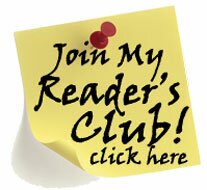
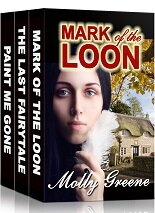
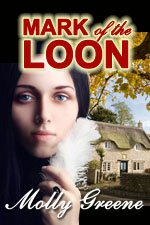
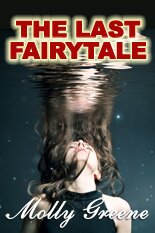
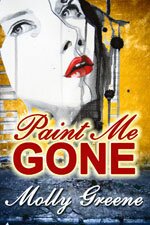
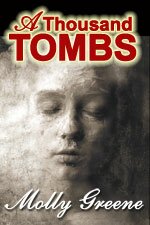
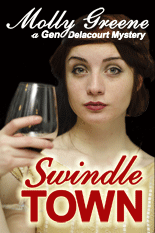
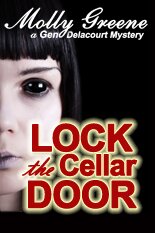
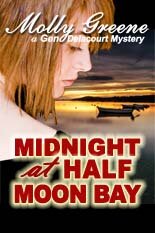
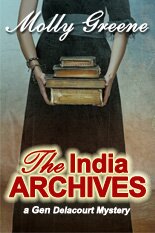

Comments are closed.